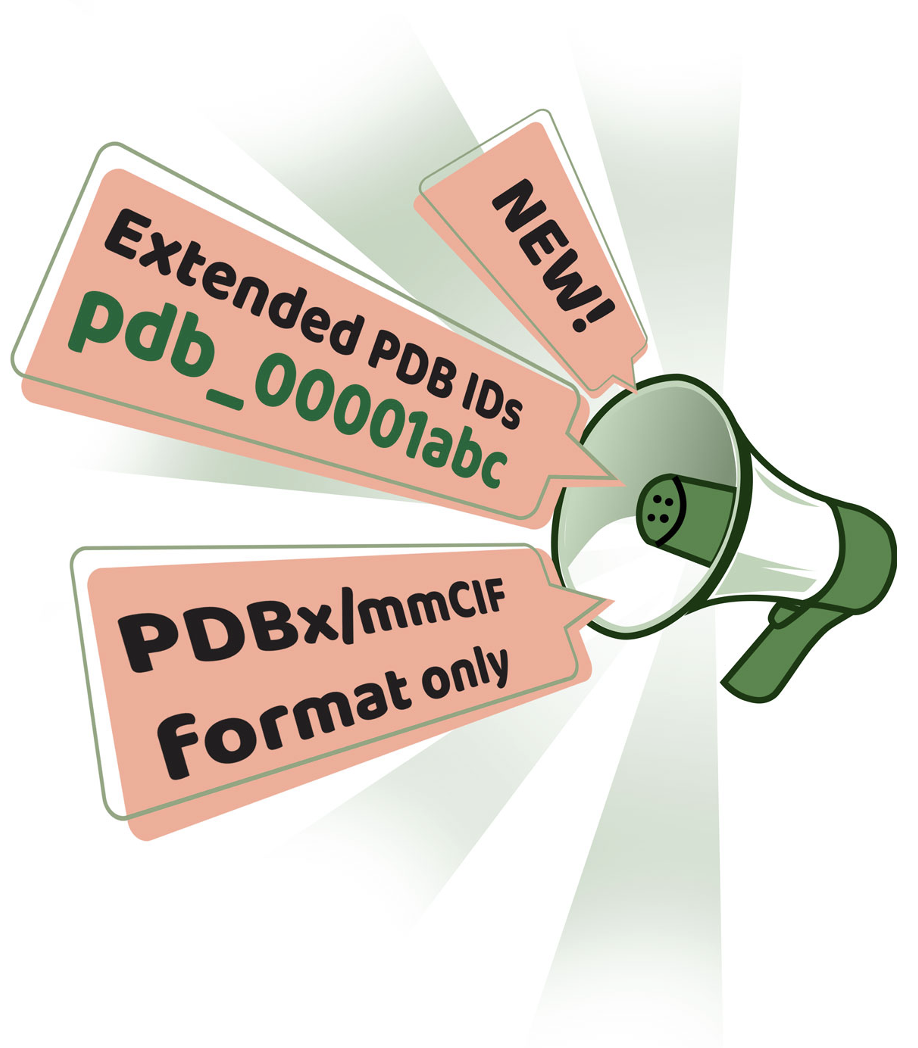New Features
Introducing Extended PDB IDs at RCSB.org
04/15 
RCSB.org has introduced features that highlight Extended PDB IDs for all structures to increase visibility and encourage early adoption:
- Search Results & Structure Summary Pages: Extended PDB IDs are displayed, where applicable
- Search: Users can now search for structures using their extended IDs (example)
- Structure Summary URLs: Pages can be accessed using the extended ID, e.g., rcsb.org/structure/pdb_00006UV8
- Data download: Access individual structure data files in PDBx/mmCIF format in a file name that uses extended PDB IDs, e.g., files.rcsb.org/download/pdb_00006UV8.cif
RCSB.org tools and resources will continue to transition to support extended PDB IDs.
About Extended PDB IDs
wwPDB anticipates that all four-character PDB IDs will be exhausted by 2028, after which 12-character PDB IDs will be issued. Entries with extended PDB IDs will not be compatible with the legacy PDB file format and will only be available in PDBx/mmCIF format. wwPDB encourages users to transition to the PDBx/mmCIF format as soon as possible.
The revised PDB accession code format has extended length and prepended “PDB” (e.g., "1abc" will become "pdb_00001abc"). This process will enable text mining detection of PDB entries in the published literature and allow for more informative and transparent delivery of revised data files.
The wwPDB resource portal page (Extended PDB ID With 12 Characters) links to useful resources for this transition, including an FAQ on PDB ID extension, materials to learn more about PDBx/mmCIF format, and links to other PDBx/mmCIF resources and software tools. As the transition phase progresses, more training resources will be added.

Watch a brief presentation by RCSB PDB biocurator Ezra Peisach on Extended PDB IDs.
Additionally, a PDB “beta” archive will be provided during the transition phase in 2026. The directory structure of this “beta” archive will mirror the data organization of the PDB Versioned Archive in the form of https://files-beta.org/pub/pdb/data/entries/two-letter-hash/pdb_accession_code/entry_data_File_names. The two-letter hash will be based on the n-2 and n-3 characters. For example, PDB entry PDB_12345678 will be under /67/. This will maintain consistency with the current PDB archive, where e.g. PDB entry 1abc is under /ab.
All PDB users, including software developers and journal editors, must transition to this format and are encouraged to start using extended IDs and PDBx/mmCIF data files today.












